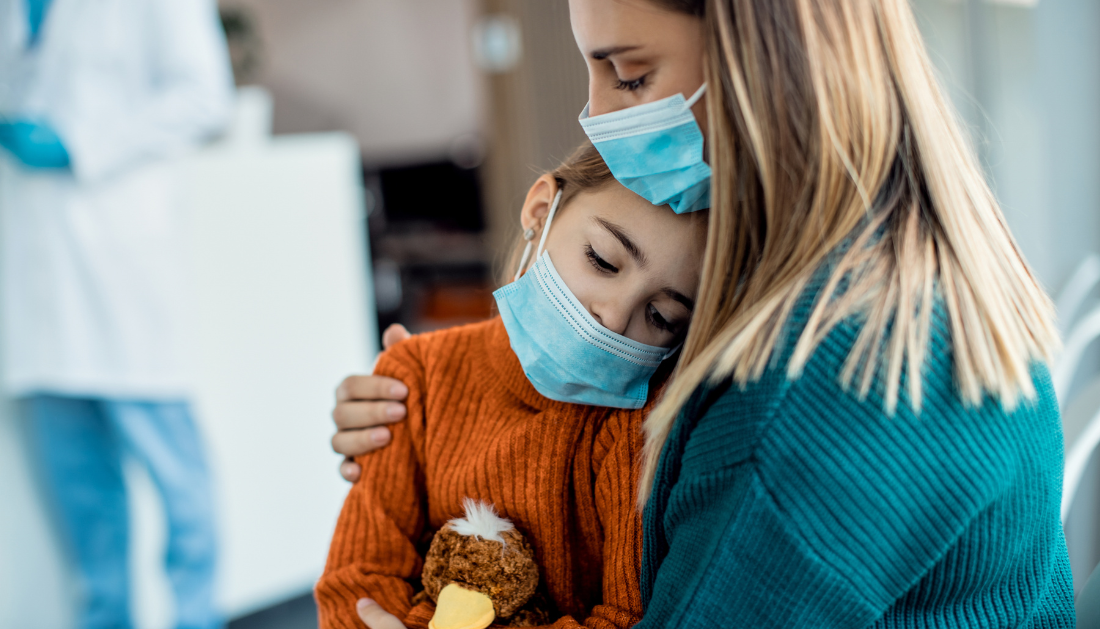

SARS-CoV-2 is the virus that caused the coronavirus illness 2019 (COVID-19), which killed millions of people globally. During the early stages of the COVID-19 pandemic, studies found that children had a decreased probability of getting severe SARS-CoV-2 infection than adults. More supporting data, however, is required to confirm this observation.
Based on a countrywide, multicenter, observational cohort of adolescents and children hospitalized owing to severe infection, a recent Scientific Reports study identified the risk variables linked with severe acute respiratory syndrome coronavirus 2 (SARS-CoV-2) infection.
It is critical to identify the underlying risk factors that raise the chance of disease severity in some children. This information would be crucial in creating successful COVID-19 risk-reduction methods as well as immunization and non-pharmaceutical guidelines for children and adolescents.
Concerning the research
The German Society for Pediatric Infectious Diseases (DGPI) has initiated a statewide survey to collect data on children and adolescents admitted to hospitals after contracting SARS-CoV-2. Between January 1, 2020, and November 30, 2022, pediatric patients aged one to 17 years old with proven SARS-CoV-2 infection who required hospitalization were recruited.
Children with pediatric inflammatory multisystem syndrome (PIMS), also known as multisystem inflammatory syndrome in children (MIS-C), were reported individually.
All pertinent patient information, such as early symptoms, exposures, comorbidities, disease course during hospitalization, medical treatment, and outcomes, was gathered. Comorbidities such as psychiatric, respiratory, hematological, cardiovascular, neurological/neuromuscular, gastrointestinal, renal, hepatic, autoimmune, syndromic diseases, cancer, primary immunodeficiency (PID), and obesity have been evaluated as potential risk factors (RF) for severe SARS-CoV-2 infection.
Six phases were identified with various dominant SARS-CoV-2 variants of concern (VOC) based on data from the Robert Koch Institute (RKI), which monitored SARS-CoV-2 variations in Germany.
The study’s findings
Due to severe SARS-CoV-2 infection, a total of 7,375 children and adolescents were hospitalized. Among these, 7,341 were admitted to German hospitals, while the remaining were admitted to Austrian hospitals.
According to prior research, the majority of children infected with SARS-CoV-2 had minor symptoms. As a result, children and adolescents had lower hospitalization and ICU admission rates than adults.
Due to SARS-CoV-2 infection, approximately half of the group did not require hospitalization. In some cases, SARS-CoV-2 infection was discovered by chance, while in others, the virus was contracted during a hospital stay.
COVID-19-related therapy was administered to just 20% of patients. This observation supports the notion that the majority of children infected with SARS-CoV-2 exhibit minor symptoms that do not necessitate hospitalization or significant medical treatment.
The introduction of various SARS-CoV-2 VOCs changed the pattern of hospitalization and ICU admission rates. Overall hospitalization and ICU admission rates in the juvenile population dropped during Omicron circulation, which may be related to the lower virulence of this variant compared to the Delta variant. Furthermore, as compared to other VOCs, the Omicron VOC phase resulted in higher vaccination coverage and infection-acquired immunity.
In comparison to other age groups, newborn hospitalization rates climbed significantly during the Omicron period. This finding is consistent with a prior study conducted in the United States, which reported increased newborn hospitalization and decreased teen hospitalization due to SARS-CoV-2 infection. Notably, many infant-age admissions were most likely the result of preventive actions rather than disease severity.
Obesity, Trisomy 21 and other genetic problems, neurological/neuromuscular diseases, and coinfections were all linked to ICU hospitalization owing to severe COVID-19. Severe immunosuppression in pediatric patients was not associated with an increased risk of severe SARS-CoV-2 infection. Obesity and Trisomy 21 were identified as major pre-Omicron risk factors, although these factors did not raise the chance of severe Omicron infections.
Overall, 12- to 17-year-olds had the highest probability of ICU hospitalization, followed by one- to four-year-olds.
Patients with recurrent obstructive bronchitis, acyanotic heart disease, cyanotic, pulmonary hypertension, psychomotor retardation, arterial hypertension, heart failure, congenital kidney disease, epilepsy, and diabetes are at a higher risk of contracting severe infection, according to the bivariate model. As a result, the presence of these characteristics must be considered while developing COVID-19 treatments and preventive measures for children and adolescents.
Conclusions
To determine risk factors for severe SARS-CoV-2 infection, the current study used a large, comprehensive, countrywide pediatric and adolescent cohort collected from multiple locations. Obesity, Trisomy 21, being between the ages of five and eleven, neurological/neuromuscular illnesses, and coinfections at the time of hospitalization are all risk factors for developing serious infection.
For more information: Epidemiology of 7375 children and adolescents hospitalized with COVID-19 in Germany, reported via a prospective, nationwide surveillance study in 2020–2022, Scientific reports
more recommended stories
 Anxiety Reduction and Emotional Support on Social Media
Anxiety Reduction and Emotional Support on Social MediaKey Summary Anxiety commonly begins in.
 Liquid Biopsy Measures Epigenetic Instability in Cancer
Liquid Biopsy Measures Epigenetic Instability in CancerKey Takeaways Johns Hopkins researchers developed.
 Human Antibody Drug Response Prediction Gets an Upgrade
Human Antibody Drug Response Prediction Gets an UpgradeKey Takeaways A new humanized antibody.
 Pancreatic Cancer Research: Triple-Drug Therapy Success
Pancreatic Cancer Research: Triple-Drug Therapy SuccessKey Summary Spanish researchers report complete.
 Immune Cell Epigenome Links Genetics and Life Experience
Immune Cell Epigenome Links Genetics and Life ExperienceKey Takeaway Summary Immune cell responses.
 Dietary Melatonin Linked to Depression Risk: New Study
Dietary Melatonin Linked to Depression Risk: New StudyKey Summary Cross-sectional analysis of 8,320.
 Chronic Pain Linked to CGIC Brain Circuit, Study Finds
Chronic Pain Linked to CGIC Brain Circuit, Study FindsKey Takeaways University of Colorado Boulder.
 New Insights Into Immune-Driven Heart Failure Progression
New Insights Into Immune-Driven Heart Failure ProgressionKey Highlights (Quick Summary) Progressive Heart.
 Microplastic Exposure and Parkinson’s Disease Risk
Microplastic Exposure and Parkinson’s Disease RiskKey Takeaways Microplastics and nanoplastics (MPs/NPs).
 Sickle Cell Gene Therapy Access Expands Globally
Sickle Cell Gene Therapy Access Expands GloballyKey Summary Caring Cross and Boston.

Leave a Comment